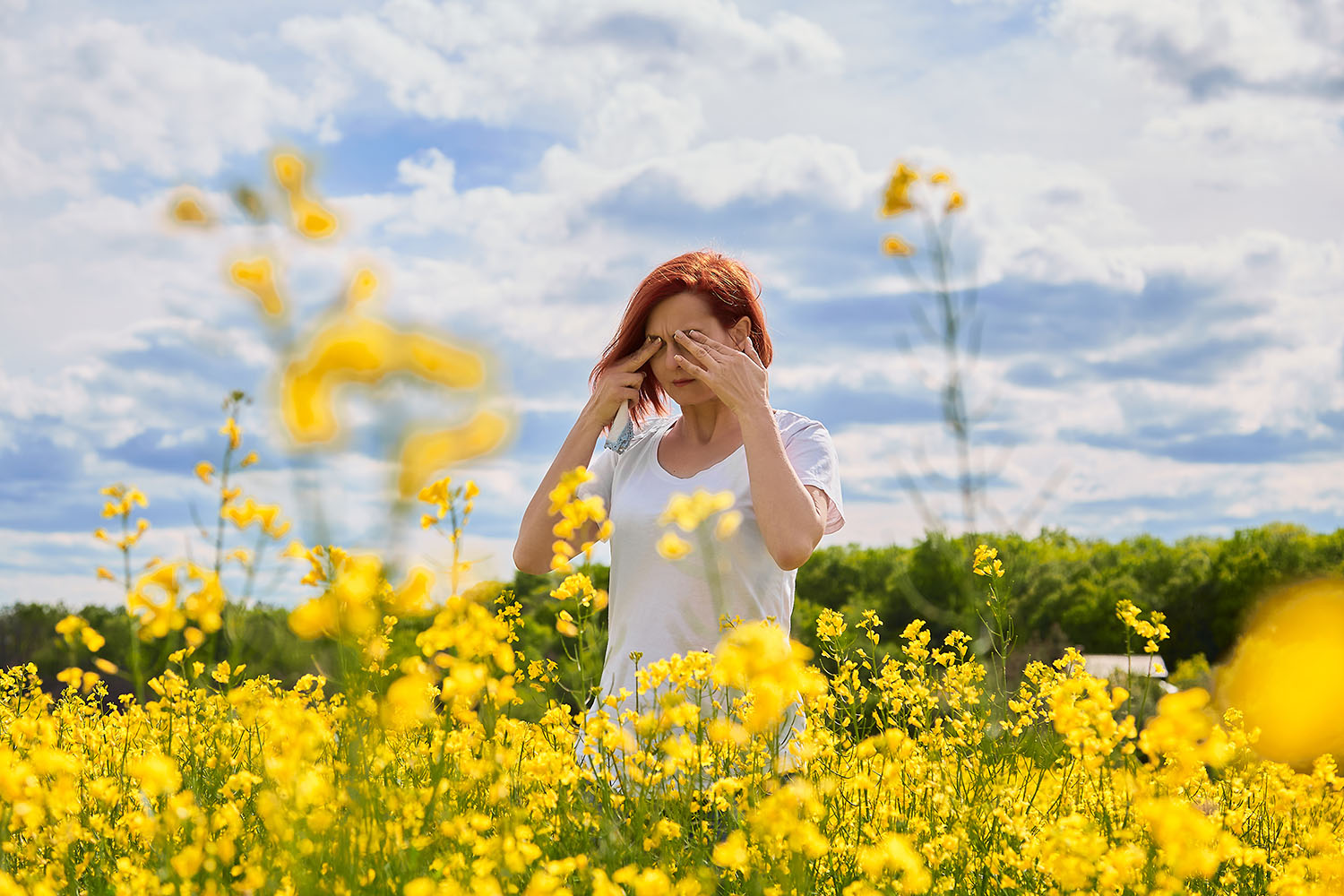As many of us welcome spring, others dread it. That’s because they know they’re in for months of red, sore, and itchy eyes.
Around one in seven Australians suffer from hay fever. Are you one of them?
If so, you’ll know that, as well as a runny nose (which is called allergic rhinitis), the eyes are also affected.
This is a condition that’s known as allergic conjunctivitis. But, of course, the world knows it by the more familiar name of hay fever.
People can suffer from the runny noses and red eyes that this condition brings all year round, including a heightened risk in autumn. However, spring is the season where it’s really bad news.
What is hay fever caused by?
There are a number of active substances that can cause allergic conjunctivitis, including:
Animal fur
Mould
Dust mites
Makeup
Eye drops.
However, pollen is the main culprit. The word pollen comes from the Greek term for ‘fine flour’. So when spring hits, it’s hard to avoid trees, grass and weeds that are all laden with offending allergens. Add in a bit of wind and you can just imagine pollen raining from the skies. That’s why your hay fever is worse in spring.
Your body also goes into hypersensitivity mode in the morning because pollen counts are at their peak between 5am and 10am – as the air warms up and the morning dew dissipates, trees begin to pollinate.
How can I tell if I have hay fever?
Hay fever affects more than just the eyes – it also produces a runny, itchy nose and even an itchy throat and ears. Classic symptoms of hay fever include:
Itchy eyes
Irritated throat
Sneezing
A blocked or runny nose.
Why does hay fever affect the eyes?
The cause of those red, swollen eyes is an organic compound known as histamine, which plays a major role in allergic eye reactions. It is produced as part of a local immune response to trigger inflammation, causing your blood vessels to dilate. The blood irritates the nerve endings and causes your eyes to water.
When you’re exposed to a substance that you’re allergic to, your immune system attempts to protect the body and starts a chain reaction that causes cells to release histamine into the bloodstream. The histamine then acts on a person’s eyes, so they become itchy, red, puffy, and watery. Antihistamines are designed to inhibit histamines.
How can I avoid spring hay fever?
It’s difficult to avoid allergens that lead to irritated, itchy, and sore eyes, even if you stay indoors. However, there are ways to reduce your suffering:
–Clean the house: Vacuum, dust, and change your sheets and pillowcases on a regular basis. A pet may contribute to your problem – try to keep them
off the bed or sofa during the peak pollen count season.
-Close your windows
-Buy an indoor air purifier
-Create a ‘barrier’: Dab a bit of petroleum jelly (Vaseline) on the inside of your nostril. That way pollen won’t be able to attach itself inside
your nose.
-Avoid the peak hour for pollen: Between 8–10am and 5–7pm is when it’s at its worst. If you’re a commuter, wear sunglasses and consider wearing a
mask.
-Get a good night’s sleep: This helps your body to recover.
-Cut down on beer, wine, and spirits: Alcohol contains histamines.
-Reduce stress
-Get fit: Research shows it reduces the symptoms of hay fever.
-Wash your hair at night: Pollen is nasty – it can stick to your hair then rub off onto your pillow.
-Eat well: Omega 3 oils, leafy greens and brightly coloured fruit and vegetables are great for eye health.
What’s the best way to treat eyes affected by hay fever?
Your first stop is a trip to your pharmacist or optometrist, who can discuss the following treatment options with you:
–Antihistamine eye drops
-Lubricating artificial tear drops can be useful for flushing out any allergens building up on the surface of the eye
-Anti-inflammatory eye drops used twice a day can help relieve your symptoms
-Oral antihistamines in tablets or capsule forms – your chemist can help you decide which is best for you.
Other ways to bring relief include:
-A cold compress held to the eyes: This will help soothe red, inflamed eyes
-Avoid rubbing your eyes: This may seem to provide temporary relief but, in fact, it causes the release of yet more histamine, and will only add to
the inflammation that is already there. That will in turn make your eyes even more uncomfortable.
Should I see a doctor?
If your symptoms persist, see your GP or optometrist. There are a number of prescription drops that should help relieve the suffering, including anti-inflammatory eye drops or decongestant drops to shrink congested blood vessels. If you suffer from severe hay fever or chronic allergic conjunctivitis, it can be treated with mass cell stabilisers, which are used to treat mild forms of asthma or steroid eye drops.
If your symptoms don’t settle or your doctor or optometrist is concerned, you can be referred to an ophthalmologist for another opinion.
How to enjoy spring
There are a lot of reasons to look forward to spring, even if you suffer from eye allergies. Follow the tips, stock up on antihistamines and eye drops and if all else fails, see your doctor.









